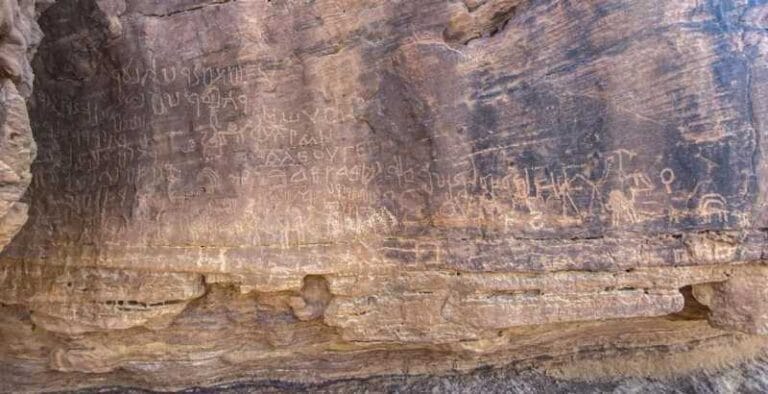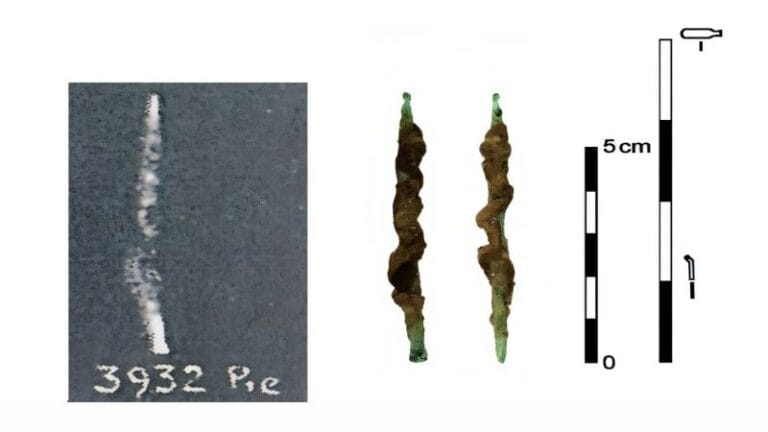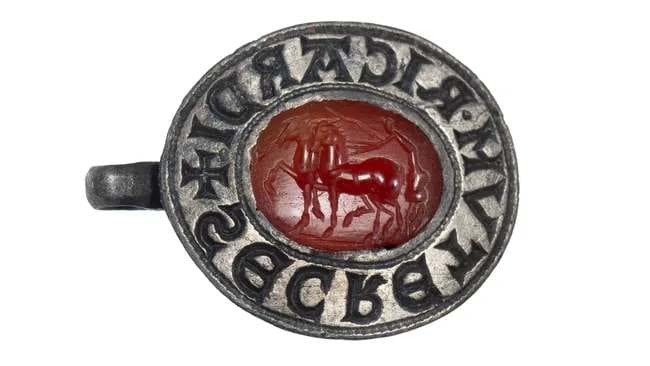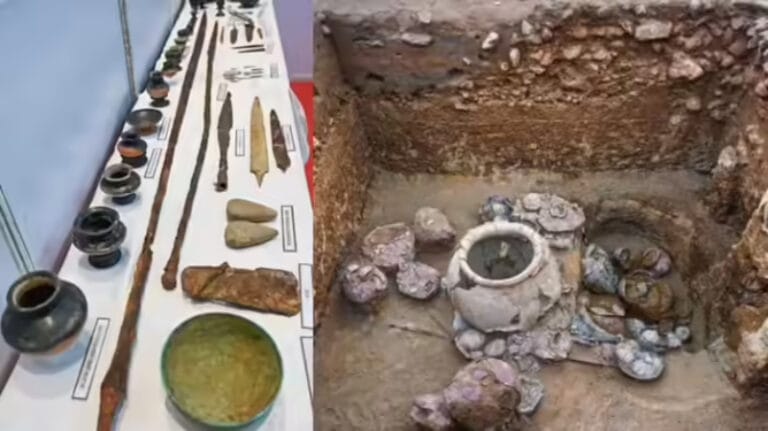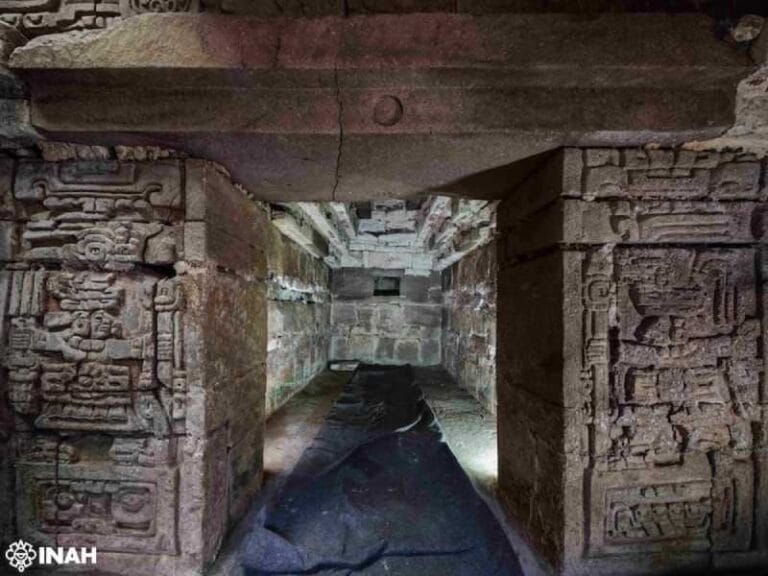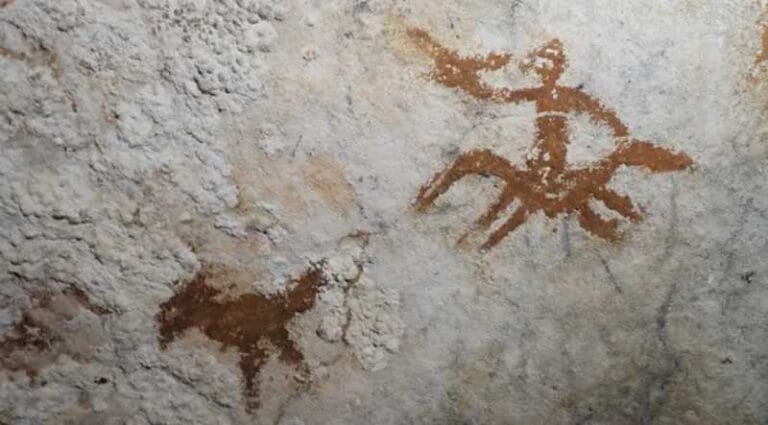Excavations on Mount Erek uncover 42 inscribed storage jars

Excavations began this year at the castle ruins in the Kevenli neighborhood, situated on the slopes of Mount Erek, which is regarded as one of the significant Urartian settlements.
The focus of the excavation was the southeastern section of the castle remains, where 42 pithoi were uncovered in an area believed to have been used for storage during the Urartian period.
It was reported that the pithoi, marked with cuneiform inscriptions, were used to store oil, grain, and beverages in the Urartian era.
Associate Professor Rıfat Kuvanç, a faculty member in Art History at Iğdır University, stated that excavation work had commenced for the first time at the site of the castle remains, which is located on a hill overlooking Van.
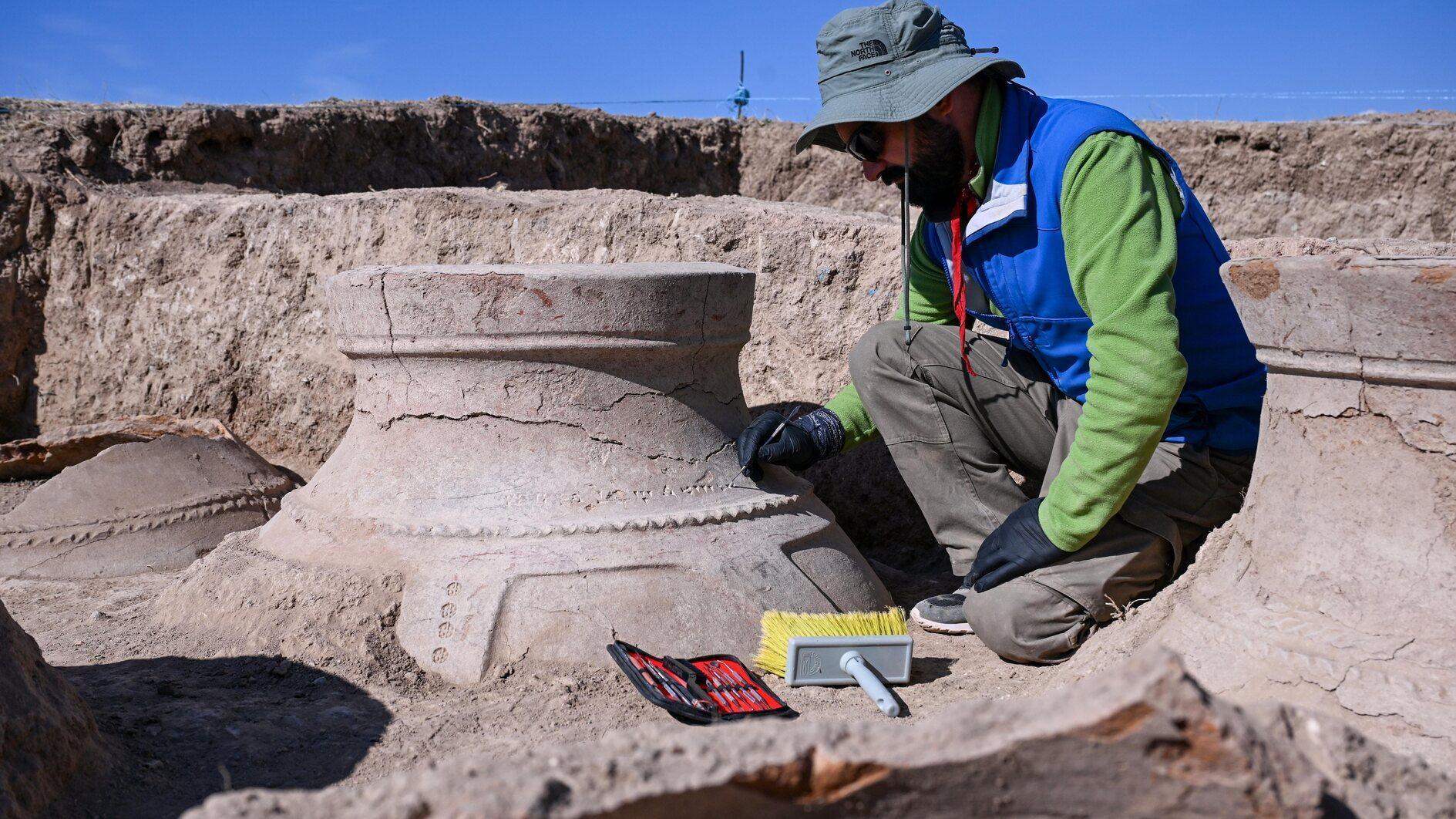
Stating that important findings related to Urartian archaeology were found in the excavations, Kuvanç said: “This is one of the places where Urartian research is conducted. It is a site we frequently visit. Our research indicate that this is a significant Urartian project. After a 10-day excavation this year, we uncovered an important site. In this area, we found 42 storage jars, which we call pithoi. There are similar storage areas in Urartian sites, but this is the first time we have found a large-scale storage area at a point overlooking Van and the plain.”
Noting that the inscriptions in the area revealed that the castle was built by Urartian King Menua, Kuvanç said: “The Urartians were an agricultural society. The storage of agricultural products was necessary. There are cuneiform writings and various symbol groups on these pithoi. These symbols also provide information about the stored products. It is specifically understood that sesame oil and wines were stored.”
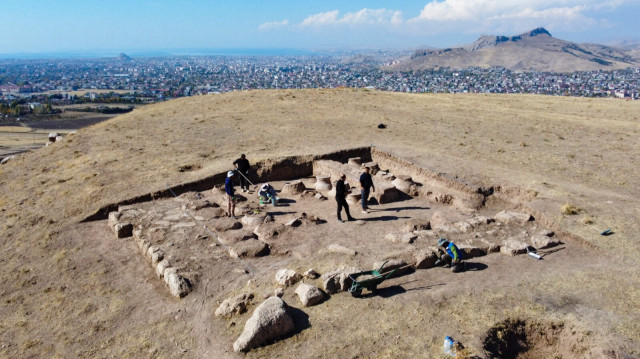
“Additionally, the cuneiform writings contain information on the measurement units of the pithoi. With this information, we can learn how much product was stored in the storage area. We can say that it was a large center where agricultural products from the Van Plain were stored. We are working in a limited area this year. Next year, we aim to uncover other architectural sections of the castle,” he added.

